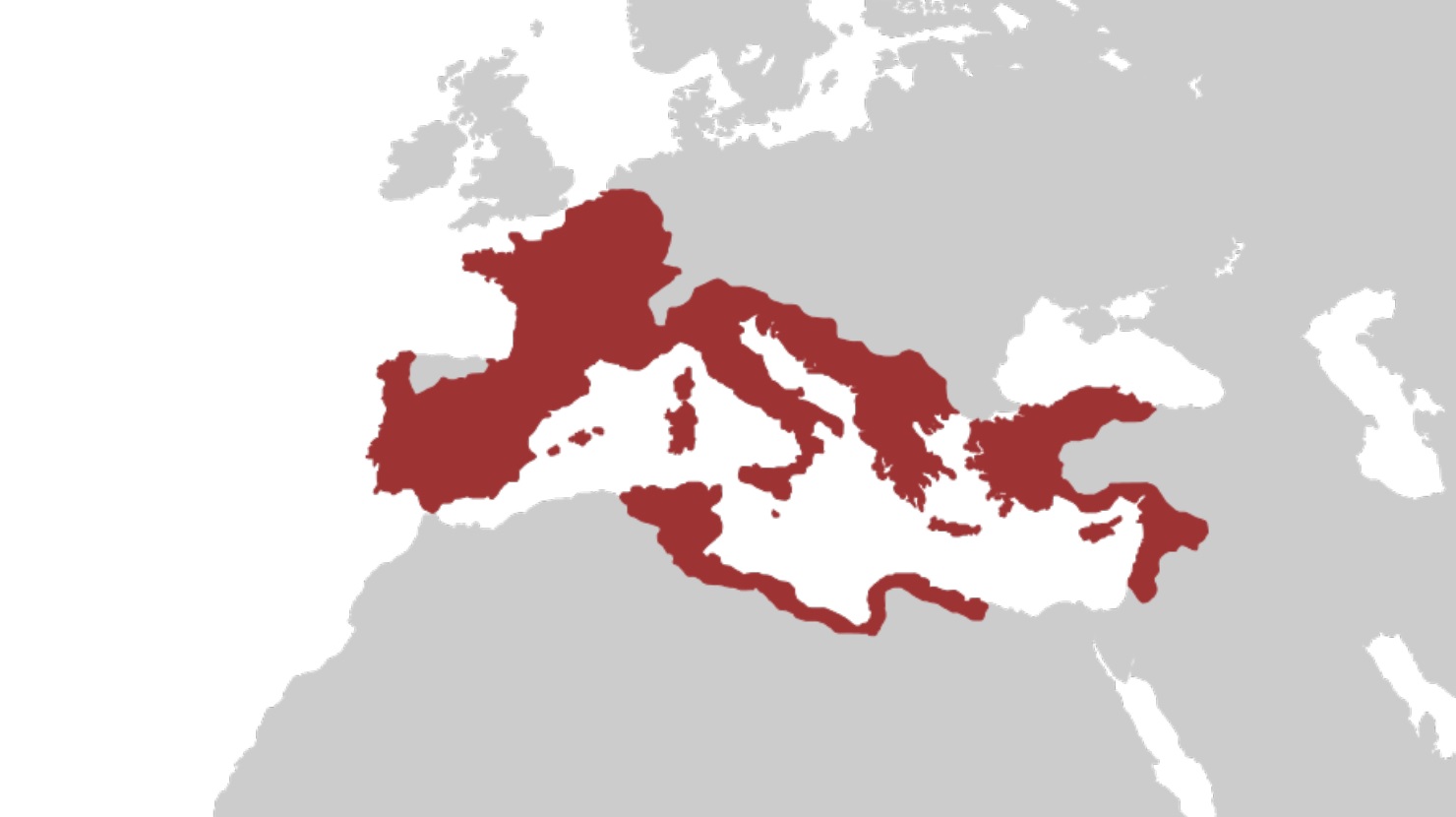Military campaigns of the Roman Republic
At the end of the 4th - beginning of the 3rd century BC, Hellenistic states were formed in the east of the Mediterranean. The most important of these were Macedonia, Ptolemaic Egypt, and the Seleucid kingdom. By the end of the 3rd century BC, the Hellenistic states had lost their former power due to external and internal shocks, as well as their mutual rivalry. These circumstances contributed to Rome's intervention in the affairs of the Eastern Mediterranean.
 Roman Republic in 44 BC
Roman Republic in 44 BC
The first attempts at Roman penetration to the east date back to the very beginning of the 2nd century BC and are associated with an operation against Macedonia. At the place called Cynoscephalae in Thessaly, the Roman legions defeated Philip V's Macedonian phalanx, which was considered invincible. After signing the peace treaty, the Roman commander Titus Quinctius Flamininus took a far-reaching diplomatic step that secured Rome's positions in Greece. In 196 BC, he proclaimed the "freedom" of Greek city-states from Macedonian rule. This way, the Romans won the sympathy of the Balkan Greeks.
Meanwhile, Seleucus Antiochus III, violating the treaty with the Romans, decided on a direct confrontation with them. In the battle of Magnesia in Asia Minor, Antiochus III was defeated (190 BC). Under the terms of the peace treaty, the Seleucids lost all their possessions in Asia Minor and paid a huge tribute to Rome.
While the Romans were occupied with clashes with the Seleucids, resentment of their rule was brewing in Greece and Macedonia. During the war, which is called the Third Macedonian War (171-168 BC), the Macedonians were defeated at the Battle of Pydna. As a result, Macedonia lost its independence, and in 148 BC, it was turned into a Roman province. Many Greek cities that supported Macedonia were destroyed, and their population was sold into slavery. In 146 BC, Greek cities, except Athens, Sparta, and Delphi, were annexed to Rome as the province of Achaea. In 133 BC, according to the will of the Pergamum king Attalus III, all the lands of this Hellenistic state passed to the Romans, where they organized their province of Asia.
During the short Third Punic War (149-146 BC), the grandson of Scipio Africanus, Scipio Aemilianus, destroyed Carthage. Its territory was cursed, and settling there was prohibited. Most of Carthaginian possessions the Roman Senate declared the province of Africa.
Thus, by the middle of the 2nd century BC, many countries and peoples living in the Mediterranean region came under Roman rule. The Roman Republic became the most powerful state. Slaves and huge material values flooded into the dominant polis. This had important economic and political implications for the development of the late Roman Republic.
Military campaigns in the Roman Republic:


